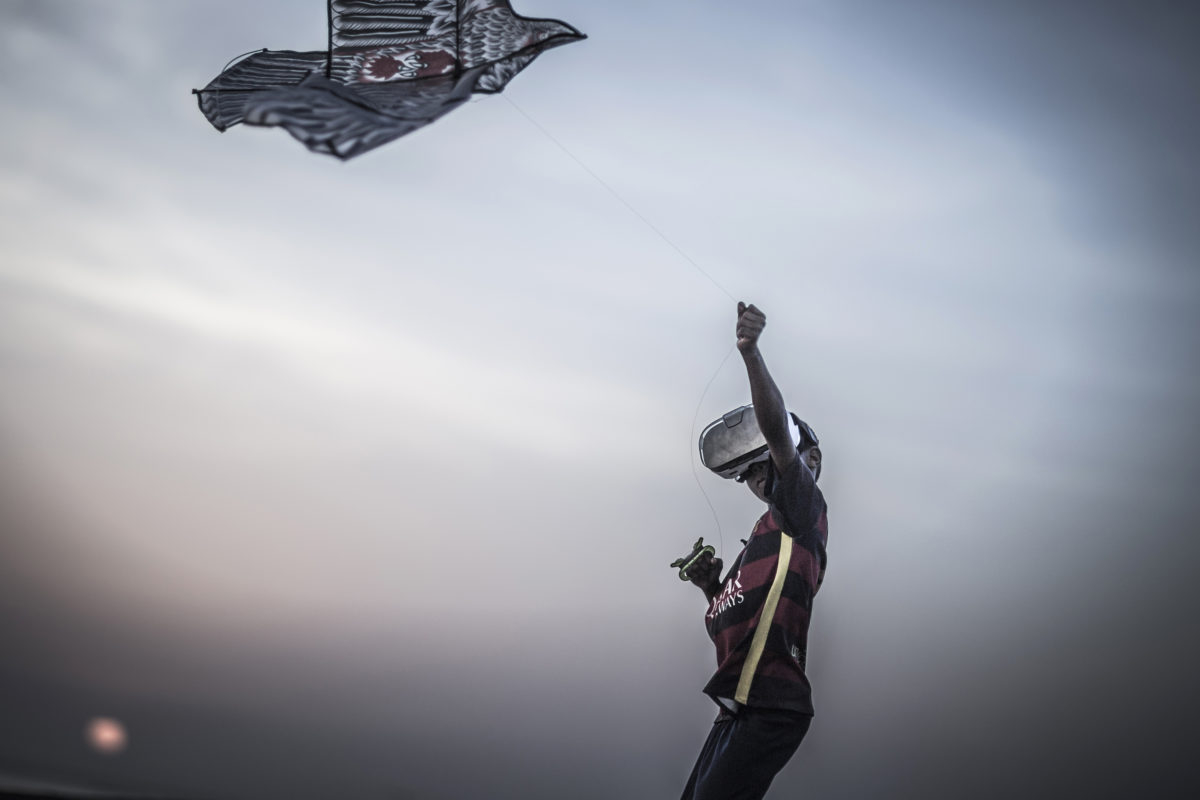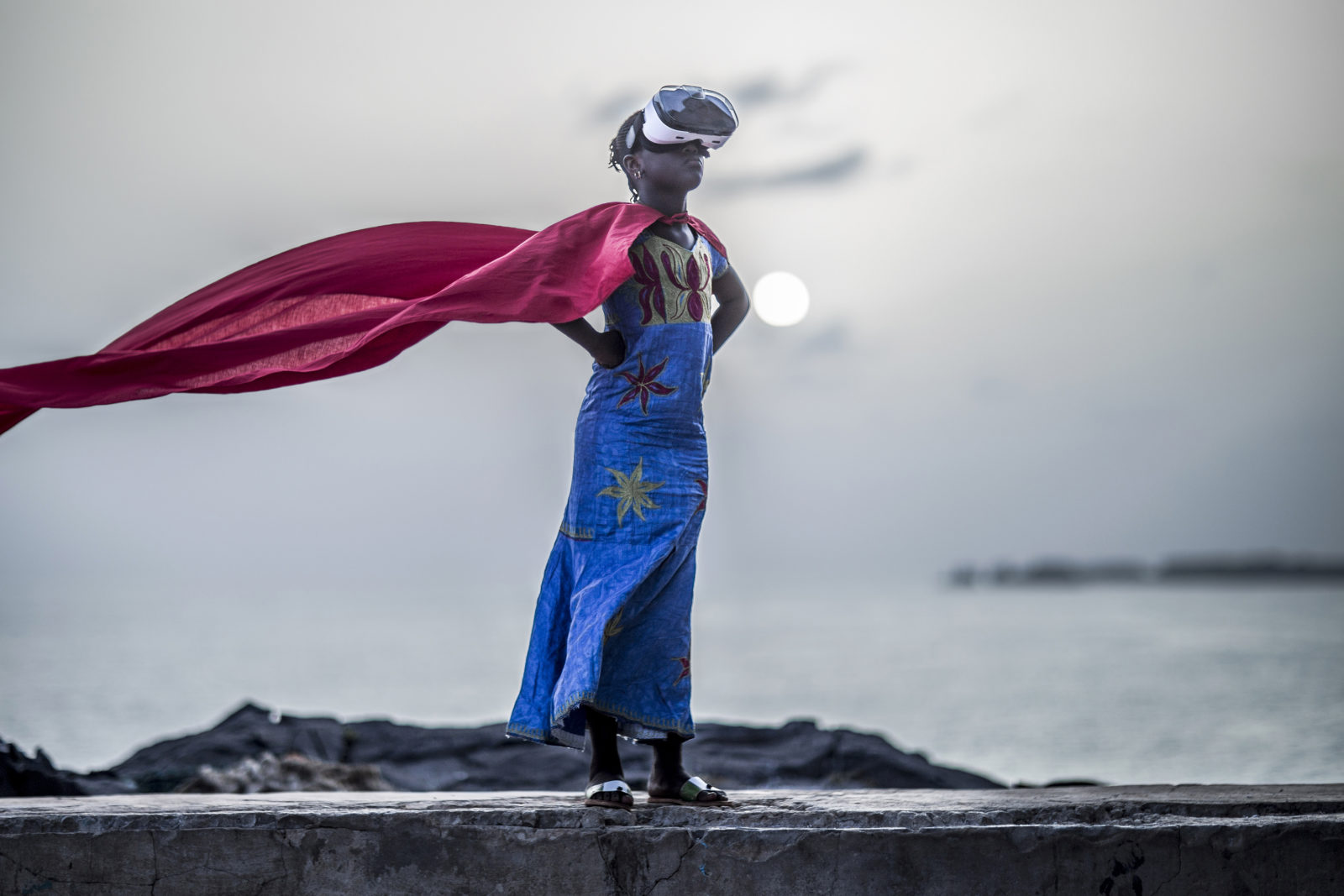From issue: #15 Hope and Futurity
Alun Be is a visual artist whose captivating images distinguish themselves through profound expression in high contrast. Born in Dakar, Senegal, his diverse approach has carved a niche suspended between his upbringing in France, the United States, and West Africa. Alun’s artform is constantly evolving through personal projects focused on the human condition in public spaces, incited by his studies in San Francisco where he received his M.A. in Architecture.
Be sat down with Photography+ to discuss his work and how the themes of hope and futurity shape his artistic vision.
P+: Thank you very much for joining us! To start off, can you tell our readers a bit about how and why you became interested in photography? What inspired you to begin your work as a photographer?
AB: I was drawn to photography thanks to its power of narrative. I was frustrated with constantly hearing degrading stories about the African continent as an African living in the West. I remember thinking to myself, if only they could see what I see…
P+: In your bio, you describe yourself as “part of a new generation of autodidact photographers from West Africa with at the core a desire to offer the world a new window to the creativity of the African continent in our own form.” How has being self-taught shaped your artistic vision and your desire to show the world the creativity of the African continent? How does belonging to a community of autodidact photographers influenced your work and your vision?
AB: They say that the West has ticking clocks, but we Africans have time. There is a certain freedom on the continent that shields you from the endless rules that govern Western civilizations. Rules can be good, but anything in excess can be dangerous. Many parts of the continent managed to keep their “jazz,” thus paving new paths to unique creativity.

P+: In this issue of Photography+, the first of 2022, we want to highlight the possibilities of hope – for meaningful social and political change – that might emerge within the violence of the present: the pandemic and global vaccine inequality, rising class inequality across the world, ongoing racial injustice and imperialism, and much more. As such, we’re asking how photography might offer us a glimpse into a different world – how it might lead us out of despair and into hope for a better and more just future. Our curators were thus very drawn to your work, especially your series Edification (2017). Can you tell us about how you see your work relating to these notions of hope, futurity, and a better world?
AB: Edification, for me, is realising that our identity is in the palm of our hands, but first we have to inherit and embrace our past in order to build our future. The world is changing quite rapidly, but speed is not the most important thing in the process of evolution —human values are far more important. As an artist, I try to bring forth the emotional intelligence that resides in all of us.

P+: In other interviews, you’ve described your work as often focusing on African modernity and on upending the racist and colonial conceptions of the African continent as not-yet-modern. I get the sense that exploring the possibilities of the future (such as the digital futures you highlight as part of Edification) is also crucial to your portrayal of the creativity of the African continent. Can you explain how modernity and futurity relate to each other in your work?
AB: When I think of modernity in the West, three things come to my mind: the environment, the balance between the masculine and the feminine, and science—especially quantum physics. Then, when I look at many parts of the African continent, I can see that nature is sacred here, that we had many matriarchal societies before colonisation, and that we always live within the realm of parallel worlds. But sometimes I feel like the West is trying to catch up with Africa, while Africa is trying to become more like the West, to a fault.

P+: Finally, are there current projects that you’re working on that you’d like to share with our readers?
AB: I am about to present a new photography series called EVOL. EVOL invokes the notion of evolution, the spirit of Eve from the garden of Eden, and the inversion of the word “love”. As the art curator Amanda Maples puts it: “Women have always been staunch protagonist[s] in the history of humanity, a verity that EVOL translates by putting the essence and strength of femininity in front of the stage as the incandescent fire of the world of Man, a world tortured and plagued by arduousness.”
You can learn more about Alun Be’s work here.


